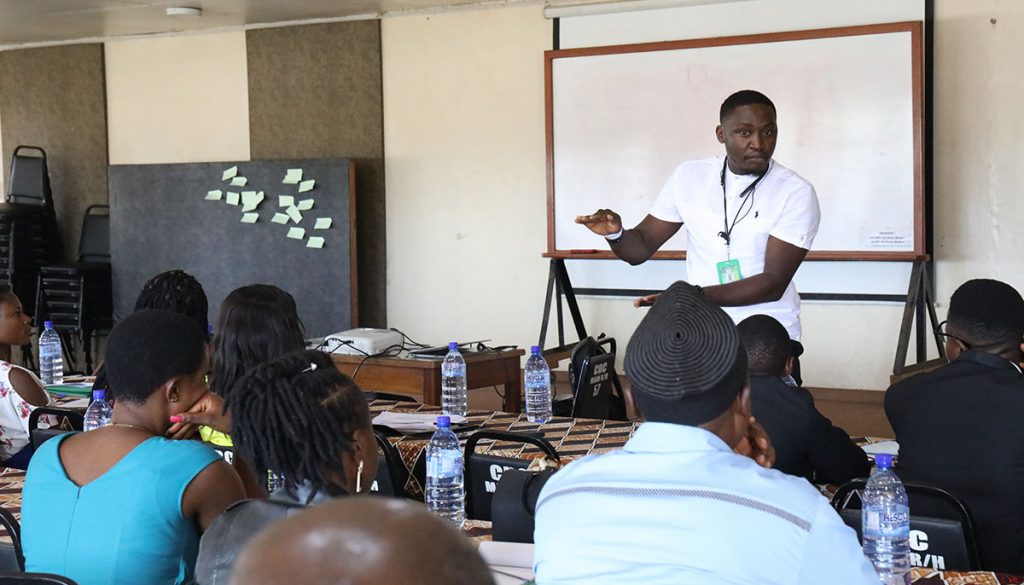UBa/CBCHS Partnership: Reaping the Fruits of Capacity Building
Academic and support staff of the University of Bamenda (UBa) have underlined the benefits and importance of inclusive practices in the University of Bamenda borne out of capacity building workshops organized by the CBC Health Services (CBCHS) under the partnership framework with the University. The appraisal was made recently during two separate outcome monitoring workshops organized by the Socio-Economic Empowerment of Persons with Disabilities (SEEPD) Program of the CBC Health Services at the Baptist Center Nkwen in Bamenda.
The workshops came on the heels of earlier sessions organized in 2021 to strengthen the capacities of the UBa academic and supplementary staff on disability mainstreaming in pedagogy practices and services delivery in the University community. The objective of the workshop was to see changes in inclusion practices in UBa as a result of actions plan and commitments developed during the initial workshop.
According to Mrs. Fobuzie Bridget, lead facilitator of this year’s workshop, the workshop offers an opportunity for experience sharing, achievements/outcome documentation, and challenges recorded in mainstreaming disability in policy and practice.
At the start of each of the workshops, the SEEPD Education Advisor, Mrs. Fobuzie expressed the CBC Health Services’ value for the partnership with the University of Bamenda, noting that there cannot be development without persons with disabilities, thus, the reason why the University has opened its doors to mainstream inclusion in its development endeavors as a University of the future. She underlined that it is not very common to have a University in Cameroon that embraces and promotes inclusive practices.
During group reflections, participants shared disability mainstreaming experiences such as the provision of extra time during exams to students with disability, identification of over 300 students with disability during admission on the University Portal, recruitment of a brailist to facilitate learning for learners with visual impairment, creating awareness on the rights and needs of persons with disabilities during different school activities. They also noted some of their challenges like physical access barriers for learners with disabilities, and insufficient assistive devices for learners with disabilities. Based on the challenges and experiences shared, presentations by the different facilitators provided ways forward on how to address some of the challenges.

Promoting inclusion at UBa is a collective responsibility
Participants appreciated the CBC Health Services and its partners for working hard with the University to ensure inclusive education and inclusive access to services is a reality. According to one of the participants, Prof. Fai Lilian who attended the workshop last year said, staff have been more intentional in making their services and lessons more accessible for learners with disabilities. “We are not yet there as far as inclusion is concern but I think we are taking the right step in the right direction slowly but surely,” she said.
At the close of the workshop, one of the facilitators, the SEEPD Program Officer, Lohshie Eugene, on behalf of the Program Manager, appreciated the participants for the little steps they are taking in fostering inclusion in UBa. He emphasized that the workshop was not only to recount successes but also to share knowledge. To drive across inclusion is not something through appointment but it is a cautious effort by individuals because if policies have to change to favor inclusion it is an individual that does it, the Program Officer noted. He implored them to be the ambassadors of the inclusion drive within the University community.
In promoting inclusion in the University of Bamenda in the Northwest Region of Cameroon, the SEEEPD Program acknowledges the support of the Australian Government through the Australian NGO Cooperation Program (ANCP).
